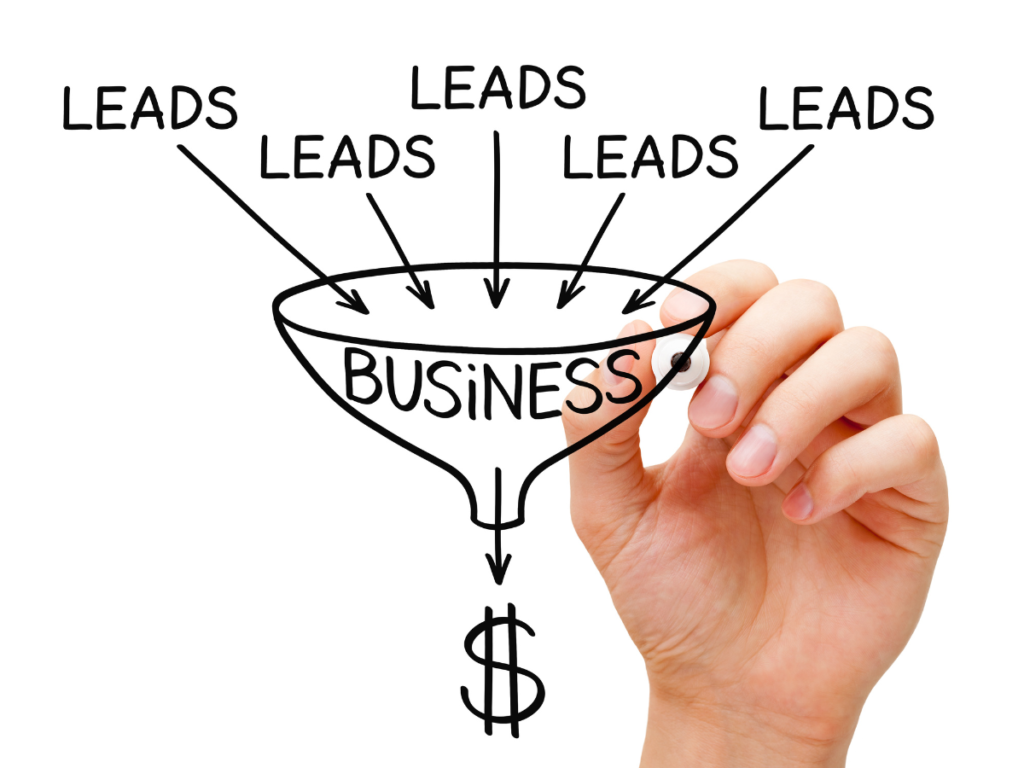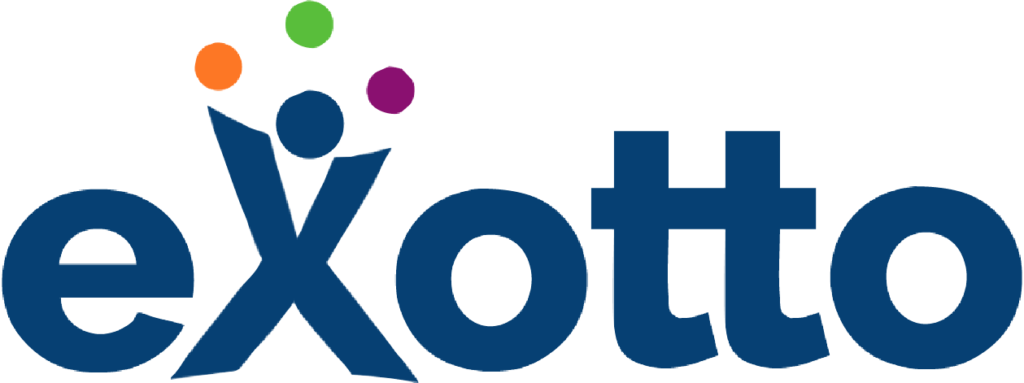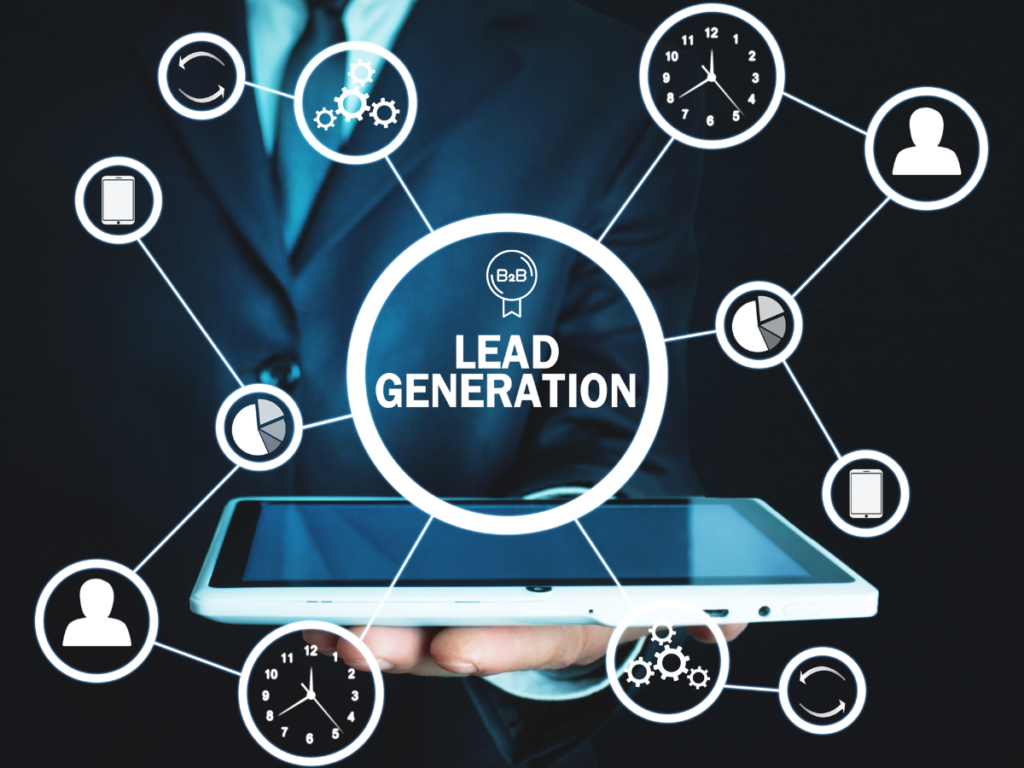In B2B marketing, lead generation is the lifeblood of businesses. Companies must adopt effective strategies to maximize B2B lead generation. One powerful strategy is personalization. By tailoring marketing efforts to individual prospects’ unique needs and preferences, businesses can significantly enhance engagement, build stronger relationships, and boost conversion rates. In this blog, we will explore the power of personalization in B2B lead generation, backed by compelling statistics and facts.
Personalization plays a crucial role in B2B lead generation for several reasons:

1. Relationship Building
B2B transactions often involve long-term relationships. Personalization helps build trust by demonstrating that you understand and value each prospect’s unique needs and challenges. It shows your willingness to go the extra mile to tailor your offerings to their specific requirements.
2. Improved Relevance
By personalizing your lead generation efforts, you can deliver targeted and relevant messages to your prospects, increasing the chances of capturing their attention and resonating with their pain points. When prospects perceive your communication as highly appropriate, they are more likely to engage and respond positively.
3. Increased Engagement
Personalized communication stands out in a sea of generic messages. It grabs the attention of prospects and encourages them to engage with your content, whether it’s opening an email, clicking on a link, or attending a webinar. There are email templates for b2b owners like you, but the templates will only work if you personalize them. Personalization helps prospects actively engage with your brand, create opportunities to nurture the relationship, and move them further down the sales funnel.
4. Higher Conversion Rates
Personalization helps you address your prospects’ specific needs and concerns, making your offerings more compelling. When prospects feel understood and see the value in your solution, they are more likely to convert into qualified leads or customers. Personalization has been shown to increase conversion rates in B2B lead generation campaigns significantly.
5. Better Customer Experience
B2B buyers expect a personalized experience just as much as B2C customers. Tailoring your interactions to their individual preferences and requirements enhances the overall customer experience, which can increase customer satisfaction, loyalty, and positive word-of-mouth referrals, further boosting your lead generation efforts.
6. Data-Driven Insights
Personalization relies on collecting and analyzing data about your prospects. This data provides valuable insights into their preferences, behaviors, and pain points. By leveraging this information, you can refine your lead generation strategies, optimize your messaging, and make data-driven decisions to maximize your results.
In summary, personalization in B2B lead generation is essential for building relationships, improving relevance, increasing engagement, boosting conversion rates, enhancing the customer experience, and leveraging data-driven insights. By tailoring your approach to each prospect, you can create meaningful connections and drive better results for your business.
Strategies for Business Growth and Success
1. Understanding Customer Segmentation and Buyer Personas
It is crucial to understand your target audience to harness the power of personalization in B2B lead generation. Customer segmentation allows you to categorize leads based on industry, company size, job role, or other relevant criteria. This segmentation provides the foundation for creating buyer personas representing specific customer profiles. By identifying and understanding these personas’ unique needs and pain points, businesses can tailor their marketing messages and offerings accordingly.
According to a study by the Aberdeen Group, 96% of marketers believe that personalization helps advance customer relationships and improve engagement.
2. Leveraging Data for Personalized Communication
Data plays a pivotal role in personalization. Businesses can deliver targeted marketing messages by collecting and analyzing data on prospects’ preferences, behaviors, and purchase history. Customer relationship management (CRM) systems and marketing automation tools enable organizations to gather and leverage valuable data insights. These insights help in creating personalized communication that resonates with individual prospects.
3. Customizing Content for Individual Prospects
Personalizing content is a highly effective strategy in B2B lead generation. Businesses can address the specific pain points and challenges of different buyer personas by creating relevant and targeted content assets such as whitepapers, case studies, and eBooks. Personalized content demonstrates an understanding of prospects’ needs and positions the brand as a trusted advisor.
4. Dynamic Website Experiences and Landing Pages
Personalization should extend beyond email or content marketing. Implementing dynamic website experiences and personalized landing pages enables businesses to deliver tailored messaging and offers based on visitors’ behavior or previous interactions. Customized experiences create a sense of relevance and increase the chances of conversion.
5. Behavioral Triggers and Automated Campaigns
Marketing automation allows businesses to trigger personalized campaigns based on specific prospect actions or behaviors. For example, sending a targeted email with relevant content when a prospect downloads a specific resource or visits a particular webpage. Automated campaigns save time, deliver timely messages, and nurture leads through the sales funnel.
6. Personalized Email Marketing
Email marketing remains a powerful tool for B2B lead generation. Businesses can significantly improve open rates, click-through rates, and conversions by segmenting email lists and personalizing content and subject lines. Using the recipient’s name, company information, and other relevant data points creates highly personalized and engaging email campaigns.
Research by Experian found that personalized promotional emails had a 29% higher unique open rate and 41% higher click-through rate than non-personalized emails.
Conclusion
Don’t miss out on the power of personalization in your B2B lead generation efforts. Understanding your target audience, leveraging data-driven strategies, and implementing personalized communication and content can enhance customer engagement, boost conversions, and maximize your ROI. At Exotto, we specialize in delivering customized B2B lead generation solutions that drive remarkable results. Contact us today to unlock the full potential of personalization and take your B2B lead generation to new heights.
Key Points
- Personalization in B2B lead generation enhances engagement, builds relationships, and increases conversion rates.
- Understanding customer segmentation and leveraging data-driven insights are key to effective personalization strategies.
- Personalizing content, utilizing dynamic website experiences, and implementing automated campaigns are effective tactics in B2B lead generation.

